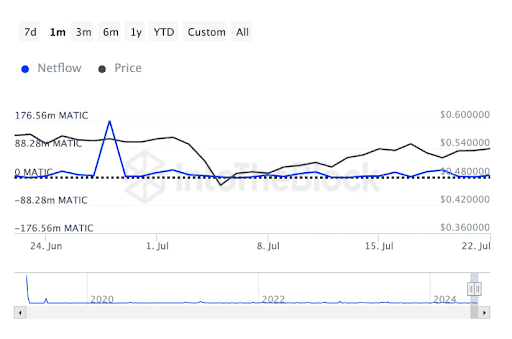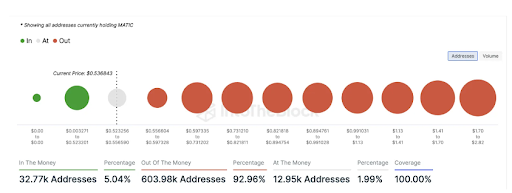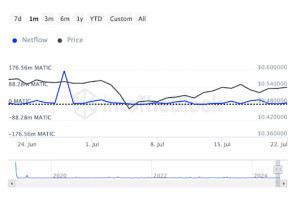- Irreducible and Polygon Labs are developing a Binius-based zero-knowledge virtual machine for blockchain interoperability and security.
- The Binius-based zkVM will enhance the current ZK rollup stack, with testing set for late 2024.
Irreducible and Polygon Labs have announced a collaboration to develop a cutting-edge, Binius-based zero-knowledge (ZK) virtual machine for the AggLayer. This project is a result of Irreducible’s work with Binius, a technology that focuses on improving the performance of computation using binary fields for verifiable computing.
Irreducible is teaming up with Polygon to take the next step in Binius’s development: a production-grade zkVM. Our shared vision is an open-source VM that will power Polygon AggLayer with low-cost, hardware-accelerated binary proofs.
Learn more: https://t.co/SceaUWxnpI pic.twitter.com/hlAOmA7SZa
— Irreducible (@IrreducibleHW) July 23, 2024
Irreducible’s involvement in the AggLayer development marks a significant step forward. In collaboration with Succinct Labs, Gateway FM, Espresso Systems, Near, and Union, Irreducible works on a protocol aimed at providing cryptographic security for a large number of assets belonging to interconnected chains.
This interoperability protocol is vital in enabling safe and fast communication between the Ethereum Virtual Machine (EVM) and non-EVM chains, which can only be realized through ZK technology.
This is in line with Polygon Labs’ strengths in engineering Layer 2 solutions based on ZK technology like Polygon zkEVM and Polygon CDK. This partnership intends to merge Polygon’s technical expertise with Irreducible’s mathematical capabilities, especially the Binius technology.
New ZK Rollup Stack Promises Enhanced Performance
The implementation of a Binius-based zkVM is anticipated to improve the performance of the current ZK rollup stack. The FPGA cluster modules of Irreducible have already been proven effective in accelerating proof generation times for Polygon zkEVM. The exact applications for the Binius-based zkVM within the AggLayer are yet to be determined, but the ongoing development will guide its practical uses.
The increasing popularity of zkVMs and zkEVMs in the last couple of years shows that each blockchain use case cannot be solved with a single approach. Consequently, the possibility of having a default standard zkVM or zkEVM will only come to fruition through collaboration. This project exemplifies a positive-sum game with open-source technology, where progress is non-linear, and innovation thrives through collective contributions. The Binius-based zkVM is slated for testing by the end of 2024.
MATIC Token Experiences Recent Market Decline
At the moment, one MATIC is trading at $0.53, registering a 24-hour decline of 2.61%. In the last month, the token value has dropped by almost 5%. The prospects for a short-term price rise seem unfavorable due to the fact that large investors have been gradually selling their MATIC tokens. According to IntoTheBlock, large holder net inflows have decreased sharply in recent times. In particular, the large holder netflow for MATIC has decreased by 271% within the last 30 days.

Large holders are those with a stake of more than 0. 1% of an asset’s total circulating supply. The change in large holder positioning is negative for MATIC. The sentiment among whale investors is that there is no reason to hold the token in the current market. Most of the holders are still in the red, which gives a bearish sentiment toward MATIC. According to IntoTheBlock, 604k addresses, which is 93% of all MATIC holders, are in the red, meaning that they are holding MATIC at prices higher than the current market value.

For instance, out of 630,000 addresses, only 33k addresses are in profit, which it only 5% of all holders. This highlights the general discontent among the MATIC holders and thus worsens the situation of the token in the market.
Recommended for you:
- Polygon (MATIC) Wallet Tutorial
- Check 24-hour Polygon (MATIC) Price
- More Polygon News
- What is Polygon?
